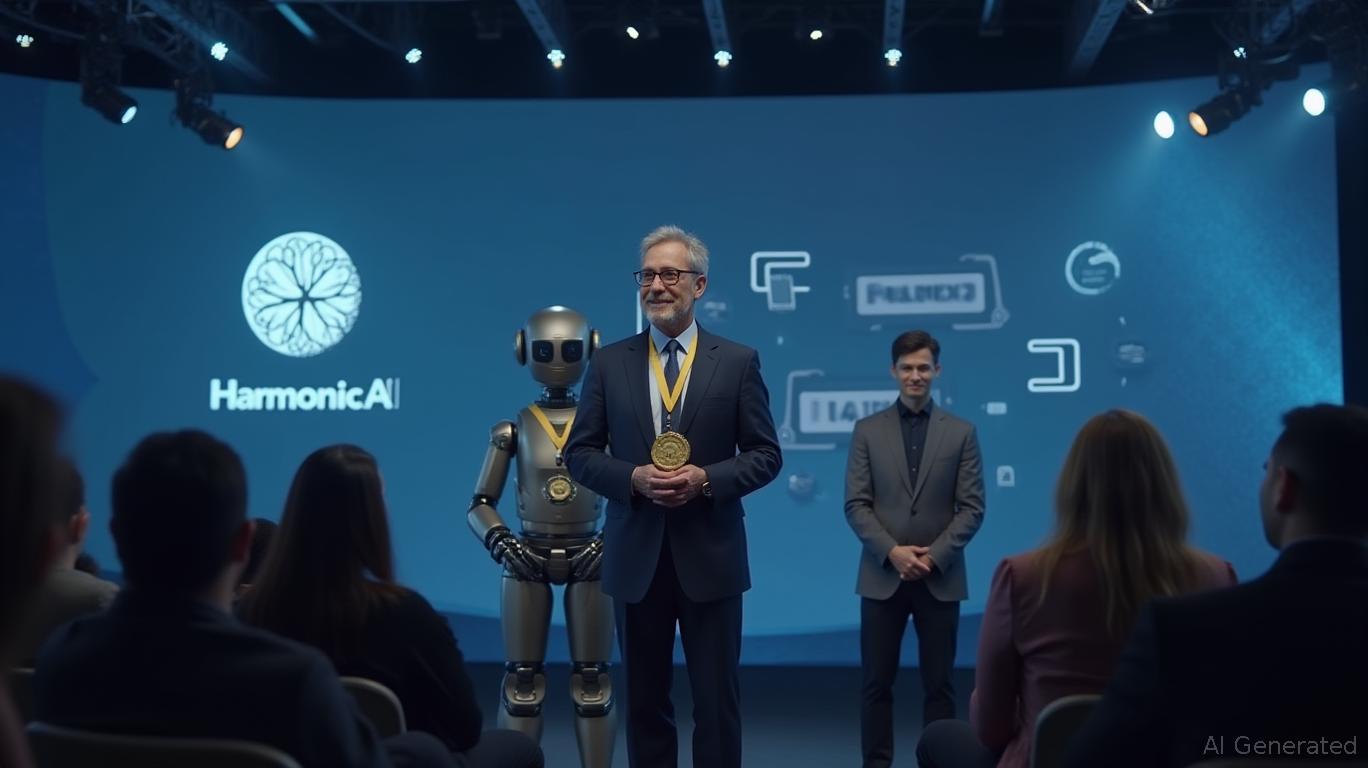Harmonic, AI Math Startup Introduce AI Chatbot Application
Harmonic, an AI startup co-founded by Robinhood CEO Vlad Tenev, announced the beta launch of an iOS and Android chatbot app on Monday, July 28.
This app will allow users to access Harmonic’s AI model, Aristotle.
The company’s objective with this launch is to increase the accessibility of Aristotle, which Harmonic asserts provides “hallucination-free” responses to mathematical reasoning inquiries.
This assertion is audacious in light of the reliability issues that currently exist in AI models. Harmonic is dedicated to the development of “mathematical superintelligence” or MSI.
The company’s ultimate objective is to assist users in all disciplines that rely on mathematics, such as computer science, statistics, and physics.
In an interview with TechCrunch, Tudor Achim, CEO and co-founder of Harmonic, stated that “Aristotle is the first product available to people that does reasoning and formally verifies the output.”
“We actually do guarantee that there are no hallucinations within the domains that Aristotle supports, which are quantitative reasoning domains.”
Eventually, Harmonic intends to release a web application for consumers and an API that will enable enterprises to access Aristotle.
Aristotle’s gold medal performance at the 2025 International Math Olympiad (IMO) was attained through a formal examination, which involved the translation of the problems into a machine-readable format, according to Harmonic.
Google and OpenAI also developed AI models that obtained gold medal performance on this year’s IMO. However, these models were evaluated in informal natural language assessments.
Harmonic has announced that it will not be publishing any additional benchmarks for Aristotle at this time.
Harmonic raised $100 million in a Series B round led by Kleiner Perkins at a $875 million valuation, and the beta launch of Aristotle was announced just a few weeks ago.
Achim asserts that Harmonic is “making strides at an accelerated pace” in its pursuit of MSI, and that investors regarded this as a reasonable valuation in light of the startup’s ambitious goals.
Several prominent technology companies are currently concentrating on the training of their AI models to address mathematical challenges.
While AI that is capable of performing mathematical operations is valuable in its own right, mathematics is also regarded as a domain that necessitates fundamental reasoning abilities that are uniquely verifiable.
Other domains may also benefit from systems that enhance these capabilities.
Achim asserts that Harmonic generates responses in the open-source programming language Lean by instructing Aristotle to generate hyper-accurate solutions.
Before providing users with an answer, Aristotle asserts that the model conducts an algorithmic process that does not involve artificial intelligence to verify the accuracy of the solution.
The CEO of Harmonic observes that comparable technologies are implemented to validate outputs in industries with substantial interests, including aviation and medical devices.
Achieving hallucination-free performance from an AI model is an exceedingly challenging endeavor, even in a restricted domain.
Research has revealed that even the most advanced AI models experience frequent hallucinations, and the issue does not seem to be improving.
The most recent AI reasoning models from Open AI exhibit a higher degree of hallucination than their predecessors.
news via inbox
Get the latest updates delivered straight to your inbox. Subscribe now!




